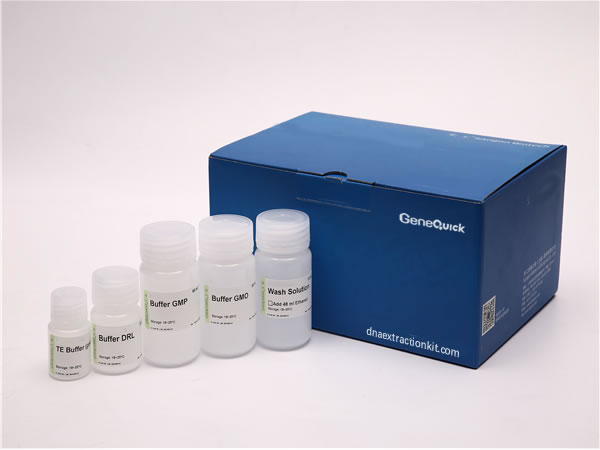What is Silica Beads DNA Extraction Kit for Plant?
The Silica Beads DNA Extraction Kit for Plant is a specialized laboratory tool designed to isolate DNA from various plant samples, including leaves, stems, roots, seeds, and more. It utilizes silica bead technology, where tiny silica particles bind to DNA molecules in the presence of chaotropic salts, allowing for efficient separation from other cellular components. This kit is essential for researchers, educators, and professionals in fields like botany, agriculture, and biotechnology who need high-quality DNA for downstream applications such as PCR, sequencing, or genetic analysis.
Designed to be user-friendly, the kit simplifies the extraction process, making it accessible even for those with basic laboratory skills. It ensures that the extracted DNA is pure, intact, and free from contaminants like proteins or polysaccharides, which is crucial for accurate genetic studies. By providing consistent results, this kit supports advancements in plant science, from studying genetic diversity to developing improved crop varieties.

Technical Specifications
| Model | Method | Sample | Format | Workflow |
|---|---|---|---|---|
| S-PLN-20R | Silica Beads | Plant | 20R | Manual |
| S-PLN-50R | Silica Beads | Plant | 50R | Manual |
| S-PLN-100R | Silica Beads | Plant | 100R | Manual |
| S-PLN-200R | Silica Beads | Plant | 200R | Manual |
| S-PLN-8R | Silica Beads | Plant | 8R | Semi-automated/Automated |
| S-PLN-24R | Silica Beads | Plant | 24R | Semi-automated/Automated |
| S-PLN-48R | Silica Beads | Plant | 48R | Semi-automated/Automated |
| S-PLN-72R | Silica Beads | Plant | 72R | Semi-automated/Automated |
| S-PLN-96R | Silica Beads | Plant | 96R | Semi-automated/Automated |
Working Principle
The principle behind the Silica Beads DNA Extraction Kit for Plant is based on the affinity of DNA for silica surfaces under specific buffer conditions. The process begins with cell lysis, where plant tissues are broken down using a lysis buffer to release DNA. Chaotropic salts are then added, which denature proteins and promote DNA binding to the silica beads. Through a series of washing steps, impurities are removed, and finally, the DNA is eluted in a low-salt buffer, resulting in pure DNA ready for use.
This method leverages the chemical properties of silica, which selectively binds nucleic acids while excluding other cellular debris. The kit's design ensures that the binding and elution steps are optimized for plant samples, accounting for factors like high polysaccharide content or secondary metabolites that can interfere with extraction. This scientific approach guarantees efficient and reliable DNA isolation.
Performance
The Silica Beads DNA Extraction Kit for Plant delivers high performance by achieving excellent DNA yield and purity from diverse plant materials, even those that are challenging to work with, such as fibrous or woody tissues. It effectively removes inhibitors like polyphenols and tannins that are common in plants, ensuring that the extracted DNA is suitable for sensitive molecular techniques. This reliability makes it a preferred choice in both academic and industrial settings, where reproducibility and efficiency are key.
Performance tests show that the kit consistently produces DNA with high absorbance ratios (e.g., A260/A280 around 1.8-2.0), indicating minimal protein contamination. This allows for successful amplification in PCR and other applications, reducing the risk of failed experiments. The optimized protocol included with the kit minimizes handling time and maximizes output, supporting high-throughput workflows in plant genomics research.
Application
This kit is widely used in various applications within plant biology and related fields. For instance, it is employed in genetic research to analyze plant genomes, identify mutations, or study gene expression patterns. In agriculture, it aids in crop improvement programs by enabling DNA extraction from seeds or leaves for marker-assisted selection or genetic modification studies. Environmental scientists use it to monitor plant biodiversity in ecosystems by extracting DNA from soil or plant samples.
Additionally, the kit finds applications in forensic botany, where plant DNA is used as evidence, and in food safety testing to detect genetically modified organisms or contaminants in plant-based products. Its versatility makes it indispensable for laboratories focused on plant science, providing a foundation for innovations in sustainable agriculture and conservation efforts.
Core Features and Advantages
The core features of this kit include its high efficiency in DNA binding and elution, scalability for different sample sizes, and compatibility with various plant species. It offers advantages such as rapid processing time, often completing extractions in under an hour, and minimal hands-on effort due to pre-packaged reagents. The silica bead technology ensures high purity DNA, reducing the need for additional purification steps and saving costs in the long run.
Another significant advantage is its adaptability to automated systems, making it ideal for high-throughput laboratories. The kit is also environmentally considerate, with reagents that are less hazardous compared to traditional methods like phenol-chloroform extraction. Overall, it provides a safe, effective, and economical solution for plant DNA extraction, supporting diverse research needs.